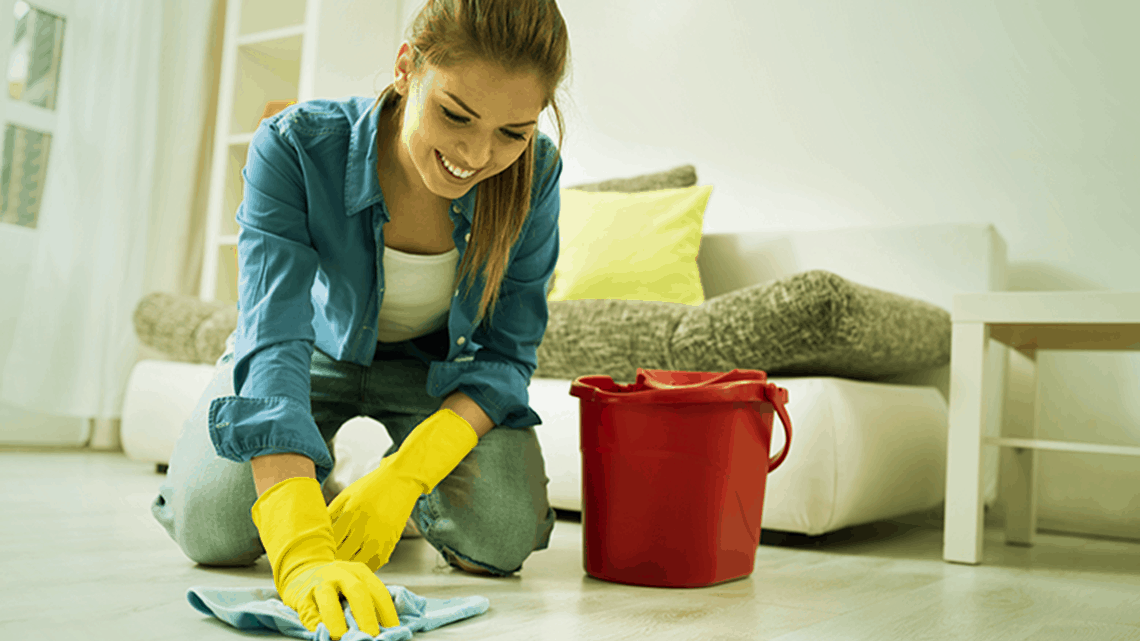Deep Cleaning Your Home Before The Baby Arrives
If you are a mother-to-be, stressing out about your baby’s arrival is only natural. However, if deep home cleaning is stressing you out, you can tick that off your list today.
Deep home cleaning tasks include organizing your household to fit the safety protocol of the highest standards. In addition, due to weak immune systems, babies are prone to dangerous bacterial and viral infections, which is why you need to ensure deep cleaning before they arrive.
Not only bacteria and viruses but various allergens also negatively impact your baby's health and might trigger allergies against microorganisms.
Deep home cleaning and disinfecting would help you maintain a hygienic environment free of harmful microorganisms that love to prey on our little humans.
Where to start?
Deep home cleaning might be overburdening, especially if you have a big house, but if you plan out, you won’t need to worry later. To make it easier on yourself, plan the tasks you need to do to achieve the deep cleaning state.
But first thing first, you must wash your hands with antibacterial soap or liquid handwash for at least 20 seconds to properly kill germs.
List down the tasks
Make a list of the areas/spaces that need your most attention. Start with cleaning the clutter, dusting, and vacuuming, then move on to the floor, furniture, and windows. You can move room by room through the house and focus on bathroom and kitchen hygiene hotspots at the very end.
Cleaning up the clutter
An untidy home can be dangerous, especially once the baby learns to crawl and move around.
When thinking about cleaning your house for a new baby, it’s a good idea to redecorate, recycle, donate, or eliminate unnecessary items.
For example, books, magazines, DVDs, outdated electronics, used clothing, or toys that are worn out. Then, go through cupboards and closets, hauling off what you don’t need.
In the aftermath of the Covid-19 pandemic, it is crucial to regularly clean and disinfect your baby’s everyday items to protect your little ones from infectious diseases such as colds and flu.
Dusting
Perform thorough dusting frequently to keep allergies at bay and prevent infectious diseases from spreading inside your home.
Besides, dust encourages bacterial and fungal growth, especially in humid conditions. For this reason, it’s important to remove dust from surfaces and objects using a feather duster, microfiber cloth, or dust mop.
Vacuuming
The second step in preparing your house for a newborn includes extensive vacuuming. This vacuuming isn’t limited to the dust that settles on the floor after dusting shelves and other surfaces.
This vacuuming also covers the upholstered furnishings, behind the furniture, inside the drawers, cabinets, and other hard-to-reach areas. When vacuuming upholstery, remove cushions and get into the creases, where bits of food or pet hair gather.
If you have a pet in your house and a baby on the way, you should be aware of these essential cleaning tips (for pet owners) to protect your house from any potential risks while raising a baby and a pet.
Surfaces and objects
Frequently touched surfaces and objects in the house harbor millions of germs and bacteria daily. You must regularly clean and disinfect them, including:
- Doorknobs
- TV remote controls
- Toys
- Electronic items such as mobile phones, iPad, etc.
- Light switches
- Countertops
- Tables and chairs
Apply Dettol’s disinfectant spray, or wipe them off with antiseptic liquid or antibacterial multiuse wipes on such surfaces and objects to ensure your baby receives an ever-lasting germs protection.
Kitchen
Knowing how to clean the kitchen before your baby arrives is crucial because when the baby comes, a lot of action will center on the kitchen.
For starters, you must clean and replace sponges and clothes regularly, as they can easily become a breeding ground for germs.
Next, disinfect your kitchen sink, counters, worktops, chopping boards, and any other multipurpose surface easily accessible to the baby with Dettol’s kitchen power killer spray to eliminate 99.9% of germs from those surfaces.
Bathroom
A few small changes to your bathroom cleaning routine can help make your bathroom safe for you and your family, such as
- Regularly wiping down sinks, toilet seats, flush, taps, baths, and walls with a disinfectant spray or antibacterial multiuse wipes to eliminate germs and bacteria.
- Always close the toilet lid before you flush to prevent the splashes of polluted droplets from escaping into the air. These droplets will, later on, settle on various surfaces and objects in the bathroom and could result in illness.
- Wash your hands thoroughly for at least 20 seconds with an antibacterial soap or liquid hand wash before and after using or cleaning the bathroom.
Think about it thoroughly
You must conduct deep home cleaning through a planned schedule that would work for everyone in the house.
Adequate energy levels are required to complete these tasks efficiently, so if you cannot finish them in one go, it’s okay. Also, once the toddler starts crawling around the house, you must ensure your floors are clean using multipurpose floor cleaners.
Finally, mark your calendars for the baby’s arrival and start your cleaning drive exactly 4 weekends before so you can easily complete the deep home cleaning task.
FAQs
Are cleaning products safe for babies or pregnant women?
Most household cleaning products, such as laundry detergents, window cleaners, and all-purpose cleaners, are usually safe for babies or pregnant women.
When should you clean your house before having a baby?
You should clean and organize your house about a month before your baby’s arrival. A deep cleaning before the baby's arrival means they will come home to a clean and healthy environment.
What is cleaning before baby called?
The urge to clean and organize before the baby arrives is called nesting. The nesting instinct is strongest in the last weeks coming upon delivery.
